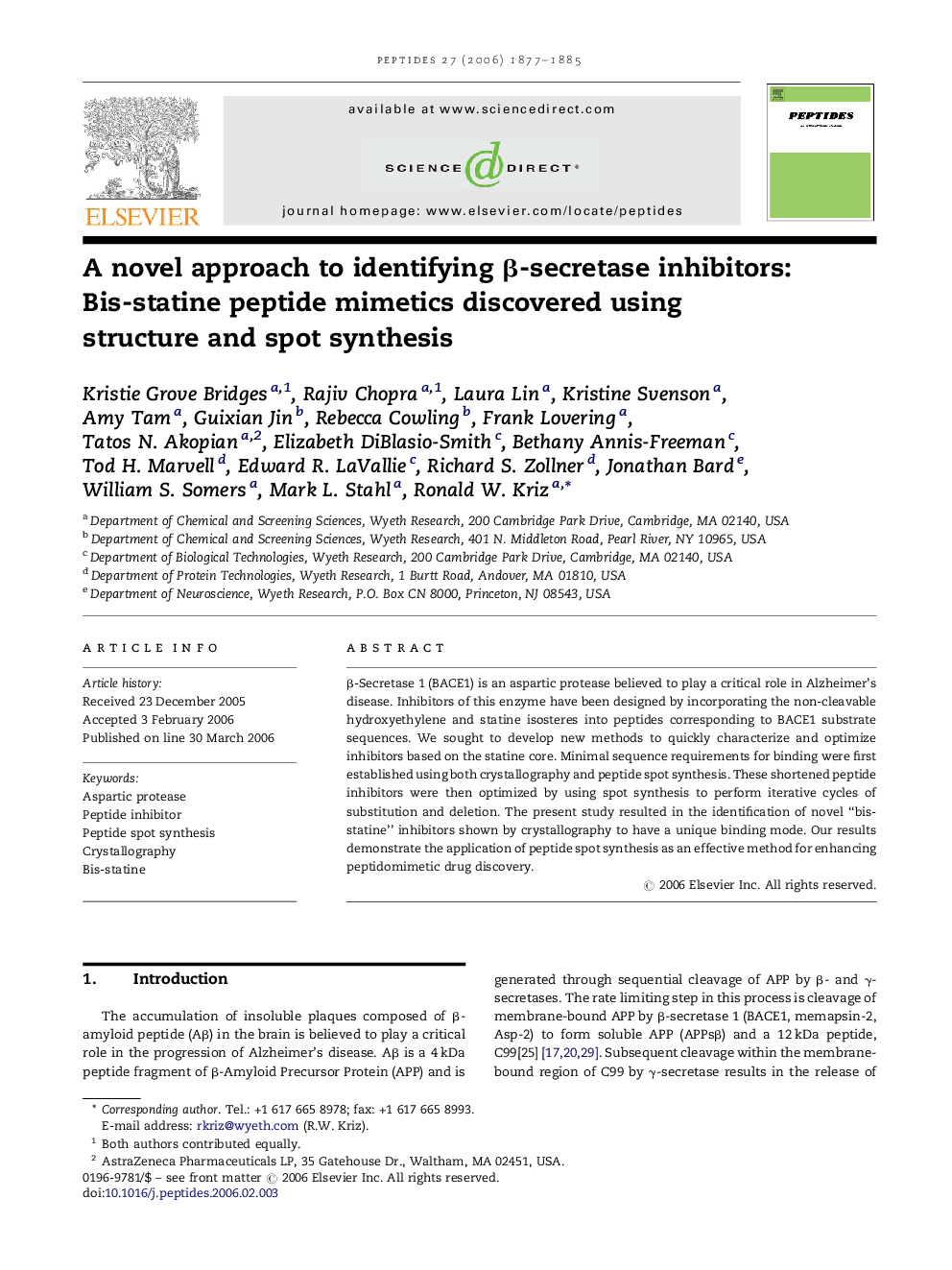| Article ID | Journal | Published Year | Pages | File Type |
|---|---|---|---|---|
| 2008252 | Peptides | 2006 | 9 Pages |
β-Secretase 1 (BACE1) is an aspartic protease believed to play a critical role in Alzheimer's disease. Inhibitors of this enzyme have been designed by incorporating the non-cleavable hydroxyethylene and statine isosteres into peptides corresponding to BACE1 substrate sequences. We sought to develop new methods to quickly characterize and optimize inhibitors based on the statine core. Minimal sequence requirements for binding were first established using both crystallography and peptide spot synthesis. These shortened peptide inhibitors were then optimized by using spot synthesis to perform iterative cycles of substitution and deletion. The present study resulted in the identification of novel “bis-statine” inhibitors shown by crystallography to have a unique binding mode. Our results demonstrate the application of peptide spot synthesis as an effective method for enhancing peptidomimetic drug discovery.
